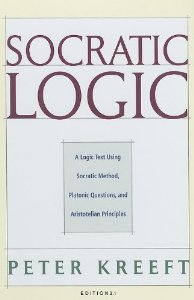The following is a guest post by my friend and classmate Brian Straus, a seminarian for the Diocese of Springfield/Cape Girardeau, in response to the following ad (and the surrounding controversy):
An article from the Christian Post Wednesday called attention to a new billboard being raised in New Jersey that renounces prayer and pokes fun at Catholics:
American Atheists is putting up a new billboard making fun of prayer outside Metlife Stadium in New Jersey, where the Super Bowl is scheduled to take place on Sunday.
The 14 feet by 48 feet billboard features a man in a priest uniform with the text “A ‘Hail Mary’ only works in football. Enjoy the game!” referring to the Roman Catholic prayer to the Virgin Mary and also the name of a long-forward pass in football.
“Prayer is superstition, plain and simple,” AA President David Silverman said in a statement.“It trivializes the dedication of the players and takes away from their achievements. A third of football fans pray in hopes of helping their team. These are adults we’re talking about – people with children, people with careers, people who vote. It’s 2014; it’s time to stop believing that prayer works. Give credit where credit is due and celebrate what this is really about-coming together to cheer on hard-working athletes doing what they do best.”
After reading this blurb quoted on Deacon Greg Kandra’s blog, I reacted with a mixture of amusement (I love the silly priest!) and disappointment that a supposedly professional organization of atheists could so badly misunderstand the concept of prayer, although I wasn’t really surprised. But most of all, the short quote from AA President Silverman immediately brought back memories from the Logic class I attended last year. Right on the spot, it struck me as a textbook example of the material fallacies.
 I brought this to the attention of my classmate Joseph, who was intrigued enough to invite me to write a guest post on it. Despite the gravity of the problem behind messages like these, it seemed entertaining to specifically explore the movement of Silverman’s thought, which I want to briefly do here. The first claim of the quote, “It trivializes the dedication of the players and takes away from their achievements,” seems like a form of Begging the Question. According to Peter Kreeft’s excellent textbook Socratic Logic, this fallacy means, “assuming what you set out to prove.”
I brought this to the attention of my classmate Joseph, who was intrigued enough to invite me to write a guest post on it. Despite the gravity of the problem behind messages like these, it seemed entertaining to specifically explore the movement of Silverman’s thought, which I want to briefly do here. The first claim of the quote, “It trivializes the dedication of the players and takes away from their achievements,” seems like a form of Begging the Question. According to Peter Kreeft’s excellent textbook Socratic Logic, this fallacy means, “assuming what you set out to prove.”
In my opinion, this was the most heavily disguised statement of Silverman’s quote; if the billboard is meant to persuade passers-by that prayer is useless, and this quote is meant to explain why, namely that “prayer is superstition, plain and simple,” then Silverman has given us his conclusion as a reason to believe the conclusion. If prayer takes away from the achievements and dedication of the players, this could only be because it is non-effective, that prayer receives credit for what player alone has done. “Prayer is useless” is the premise in an enthymeme that concludes “prayer takes away from the player’s achievement”. And this conclusion is given as evidence to believe in its premise. If one wanted to dig deeper theologically into the enthymeme, one might argue that, according to the Church’s understanding of prayer and Divine Providence, it’s a non sequitur that prayer steals the thunder from the player’s own efforts and credit received for his achievements; God’s grace works through cooperation with human efforts. But I digress.
 |
| If you are interested in logic, you might want to buy this. |
The next fallacy is far easier to diagnose: “A third of football fans pray in hopes of helping their team. These are adults we’re talking about – people with children, people with careers, people who vote.” I find it mildly surprising that a third of adult fans pray for their sports team to win, but I’ll leave aside discussion of the value, efficacy, and significance of praying for sports victories. This seems like a clear Ad Ignominiam, the appeal to shame. Assuming that asking the intercession of a higher power is a childish and pathetic pursuit, what business do adults have in resorting to prayer to get what they want? Do you want to be one of those adults, or do you want to be responsible and realistic? The character of this fallacy is to mislead us away from discussion of truth, and unreasonably assume a value judgment.
The following claim is very similar: “It’s 2014; it’s time to stop believing that prayer works.” If not falling under Ad Ignominiam, it may qualify as Ad Populum, an appeal to values that the society of the time accepts. The reader won’t want to be seen as outdated by sensible people, so Silverman seeks to persuade him that it’s just time to move on, irrelevant of whether this value judgment is true! From another perspective, this claim qualifies for what Kreeft calls the fallacy of Slogans; the formula of “it’s [year] and people still believe in [idea]” is all too common these days, closely related to the old “you’re on the wrong side of history!” which can both unfortunately have persuasive influence.
 |
| Brian Straus Guest Blogger |
The end of Silverman’s little quote, “Give credit where credit is due and celebrate what this is really about-coming together to cheer on hard-working athletes doing what they do best,” looks like a more positive form of Ad Populum, attempting to relate to the reader’s patriotic love of the great American game of football. A nice sentiment, I think, and not entirely false, but it is a pleasant misdirection away from prayer, not evidence for rejecting its reality.
I’m no logician, and I’m certain some readers will be able to better articulate the material fallacies entrenched in Silverman’s explanation of the billboard, and may find some to add to the lit. For example, in both the billboard and supplemental comments, American Atheists is operating under a Straw Man Fallacy constructed from a superficial concept of what prayer is, especially as defined by the Catholic Church herself.
Now, picking apart this attempt at persuasion seemed fun, which is why I wanted to perform this exercise (and Joseph invited me to do it here). However, here we encounter the grim reality of a prevalent two-fold problem in today’s culture:
- Why do atheists attack Christian prayer under this flimsy straw man misconception?
- Why is this actually persuasive to Americans? And it is indeed an effective persuasion tool, as we commonly find in the forums, blogs, and conversations of contemporary atheists everywhere today: Prayer is seen as an instrument that changes things to the way we want them, that “convinces” God to directly intervene in nature so we obtain some desired end. This is implicit in Silverman’s statements, as if we Christians who pray consider ourselves praiseworthy for the outcome, while disregarding the human agency that brings about the outcome as efficient cause. In other words, atheists assume we hold the attitude that my sports team will win if I pray enough Hail Mary’s for them, making any attempt of theirs obsolete.
 |
| Eduard Veith, Praying in the Church (20th c.) |
On the contrary, Christians believe that God is impassible, immovable; in stirring the Lord’s pity, we find that He knows what we need before we ask it (Mt 6:8). As Augustine (and the Catechism) said, “God wills that our desire should be exercised in prayer, that we may be able to receive what he is prepared to give.” We can knock down the straw man for the atheists: prayer isn’t a way to steer God’s will toward the end we desire, but is only true prayer insofar as it is submitted to God’s will in the first place; intercessory prayer then asks God for the gift He has already planned to give, and He wants us to ask it of Him. Prayer doesn’t move Providence, but can lead to God’s influence on the world through Providence. Providence doesn’t supersede nature and efficient cause, except perhaps in rare and obvious miracles; at any rate, a miracle isn’t what I’m asking for or expecting if I pray for a touchdown.
Another deficiency in the common secular misunderstanding of prayer is the idea that prayer is merely, or primarily, intercessory; that it’s asking God for stuff. Actually, Christians widely consider prayer to be five-fold: it takes the form of Blessing, Petition, Intercession, Thanksgiving, and Praise (CCC 2644). The Lord’s Prayer, of course, is our greatest model for all prayer, containing elements of all essential elements of prayer within it; Jesus tells us first and foremost to pray as He does.
Are we willing to correct atheist/agnostic criticisms of this misunderstanding, or are too many Christians subscribing to these very attitudes? In the Christian Post article itself, Senator Lanza of New York responds by saying the ad lacks “decency, civility and kindness.” Yeah, very true; but is that all? Is that even the biggest problem with it? It’s not even an attack on Church teaching. Christians should be at least a little disturbed by this common polemic from atheists against prayer, but are we aware of the atheists’ ignorance of our actual definition of prayer? Often, it seems to me that Christians are unaware of this; they may actually subscribe to a very similar definition of prayer as the atheists, and regard these diatribes as simply a generic attack on a monotheistic belief system, not an ignorance of true Christian doctrine and practice; at most, it seems many American Christians would simply shake their heads in annoyance at the nerve of those atheists for daring to speak bad about our faith. And this seems to me to be the root of the paradoxical success of the contemporary atheists: They don’t have to get Christianity right in order to attack it, because their efforts are persuading young people anyway. Unfortunately, material fallacies seem to work.


I know it bad of me but I like to correct people who pull out the ‘Hail Mary’ play. I like to say “no, its the Hail Holy Queen Play”. me bad. As a former player and more recently a football official. I’d pray on every play that I’d make the right call or no call as the game warrants. Keep the officials in your prayers.
My favorite fallacious argument in the billboard is the last line “Enjoy the Game!” which (when taken in the context of the full statement) is implying that praying during the game reduces the enjoyment of the game. Rather than praying for your team to win, enjoy the game! This, of course, is a false dichotomy – the billboard is presenting two options (pray during the game or enjoy the game) when there is at least one more, pray AND enjoy the game. This is representative of the “new” atheists weakest and perhaps most common argument, that life is more “enjoyable” without religion. Of course, studies have shown that religious people are happier than non-religious people, which (while not proving religion is true) disproves the idea that atheists have happier lives.
My life is a lot happier now that I’m an atheist. I stopped lying awake in bed, worrying about my afterlife in regards to my political views, because lets face it; our political choices are to R) starve the poor to give the wealthy more money or D) kill babies. When something bad happens to me, I don’t think that a deity that supposedly loves me is letting bad things happen to me, I just accept that in the face of an uncaring cosmos its amazing that I have things that make me happy at all. All of my achievements in life? They’re now my achievements, I don’t have to credit them to a higher power. And best of all, I know that my children will never be forced to face their own mortality right before bedtime by uttering the phrase ‘If I die before I wake’, which is what started the insomnia that stopped shortly after I said my last prayer.
Excellent job! Enjoy life free of religious indoctrination!
Yeah… because there isn’t anything to make you worry when you have a godless worldview /sarcasm.
RampantHobo,
1) Even if you (or any particular atheist) is happier, using that as grounds to claim all people will be happier as atheists is a fine example of another logical fallacy, hasty generalization.
2) How do you know God doesn’t exist? To claim that God doesn’t exist anywhere at anytime in the whole universe would require you to know everything about all of space and time. But to do so, you would have to be God (in which case God would exist).
3) Your conception of the afterlife and political views is odd. The R / D choice is an example of another logical fallacy, the false dichotomy.
4) What is a “bad thing”? Without God, without an objective measure of goodness, “bad” can only mean “something I don’t prefer.” Is killing babies just something you don’t prefer? Was the Holocaust? Was slavery? Or are those things really evil?
5) Achievements. This was covered in the post above.
6) Your children facing mortality / your insomnia. Telling your kids that when they die they will cease to exist forever, that their life is completely meaningless, that they live in an “uncaring cosmos”, is that the best part of atheism? That really makes you happy?
Do you have proof of an after life or god? Because as far as I’m concerned if you don’t, god does not exist. And of course, life as an atheist is just as meaningless as worshiping an imaginary deity. And of course, god isn’t necessarily a measure of goodness (not that a god exists!). I have known many atheists and non-christians with stronger moral codes than people of christian beliefs.
I’ve read a number of books about the decline of Christianity in our culture, and decided to write a few blog posts about what I read and what it might mean. I titled the first: The Growth of Atheism: 1. Roots. I was surprised to see I received a number of hits from an atheist’s website, and going there saw that was a link there to my blog post. Atheists are apparently interested reading about it, but no comments from them yet.